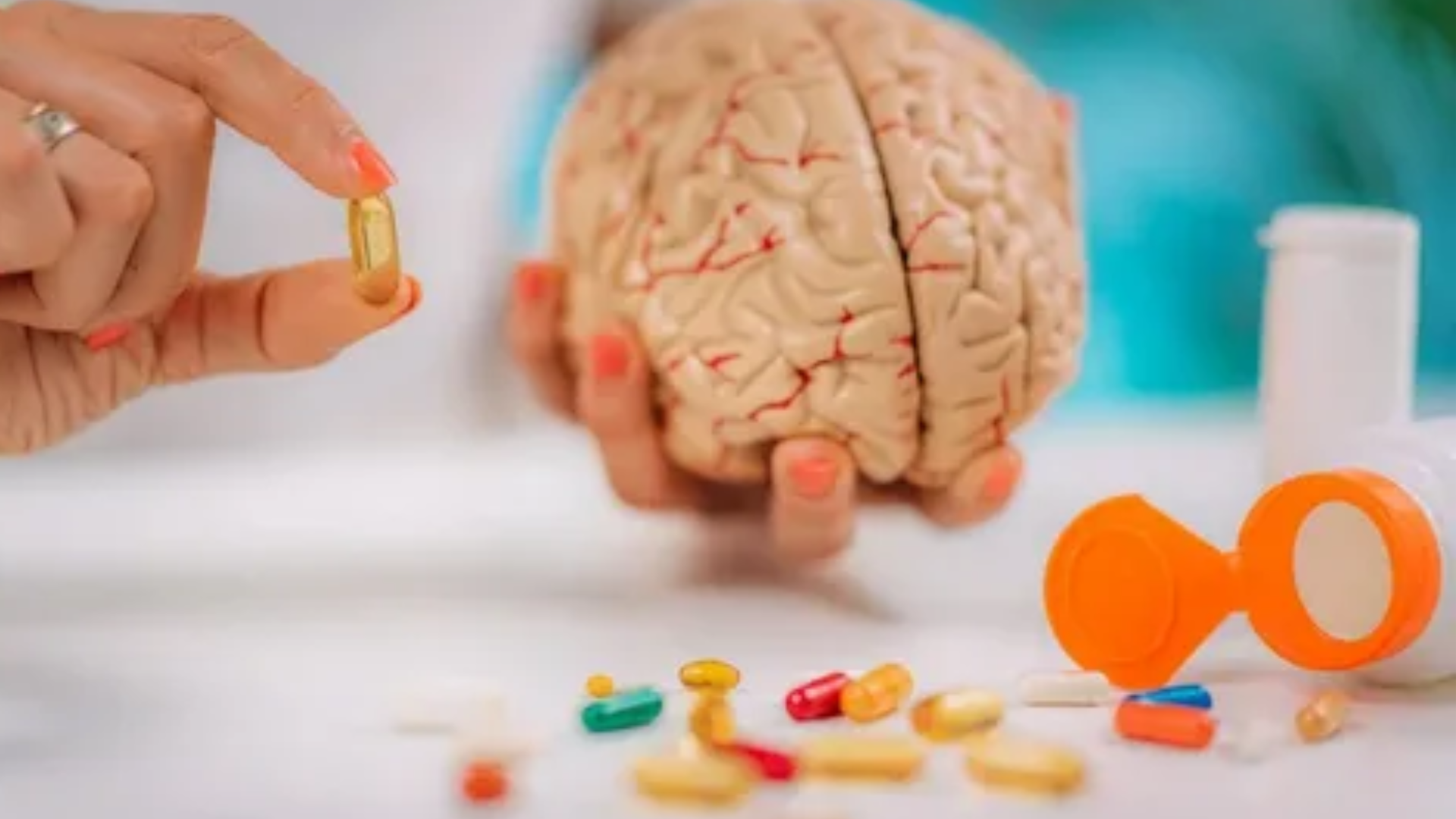Gut health isn’t just about avoiding that post-lunch nap or making sure your stomach doesn’t sound like a broken drum. Indeed, it goes much deeper than that. People often refer to your gut as your “second brain”. It’s a powerhouse of activity, influencing everything from your mood to your immune system. So, prepare to explore the enigmatic realm of gut health and discover the keys to maintaining optimal health.
What’s the big deal about gut health?
You might be wondering, “Why is there so much talk about gut health?” Well, imagine your gut as the command center for more than just digestion. It’s involved in hormone regulation, mental health, and even skin health. Your gut microbiome, a diverse community of bacteria and microorganisms, communicates with your brain, helping to control your emotions and mood. Yes, your gut can make you feel happy—or not-so-happy!
Imagine your gut as a rock band, with the microorganisms acting as the musicians and the brain as the conductor. If the microorganisms in your gut aren’t playing in harmony, the overall performance, or your health, will suffer.
The Science Behind the “Second Brain”
Before you start picturing tiny brains floating around in your intestines (we promise, it’s not like that), let’s dive into the science behind your gut-brain connection.
The Gut-Brain Axis
The gut-brain axis (GBA) is the direct communication pathway between your gut and your brain. It involves a complex network of neurons (nerve cells), hormones, and biochemicals that allow your gut and brain to “talk” to each other. This connection is so strong that many researchers have begun to refer to the gut as the second brain.
Your gut sends signals to your brain about what’s going on inside your digestive system, such as hunger or discomfort. At the same time, your brain influences your gut by affecting things like digestion speed or the way your body responds to stress.
Did you know that your gut produces about 90% of the serotonin in your body? That’s right, the “happy” hormone lives in your belly, not your brain!
Microbiome Madness: Meet Your Gut’s Cast of Characters
Now, here’s the twist. The true stars of your gut health show are the trillions of bacteria, viruses, fungi, and other microorganisms that live inside you. Collectively, they’re called the microbiome. These tiny creatures work together to keep your digestive system, immune system, and even your mood balanced.
However, not all bacteria are the same. You need a diverse mix of beneficial bacteria (the friendly ones) to keep things running smoothly. A healthy gut microbiome can help digest food, absorb nutrients, boost immunity, and fight off harmful pathogens. On the flip side, an imbalance in gut bacteria (too many harmful bacteria or not enough beneficial ones) can lead to a host of health problems, including digestive issues, mental health disturbances, and even skin conditions.
Why Gut Health Shouldn’t Be Ignored
Ignoring your gut health is like ignoring a small leak in your roof. Sure, it seems like no big deal at first, but over time, it can cause major damage to your body and mind.
The Gut’s Role in Digestion
Let’s start with digestion, the most obvious connection between gut health and well-being. Your gut breaks down food, absorbs nutrients, and eliminates waste. But when your gut is out of whack, it can lead to bloating, gas, diarrhea, constipation, or even more serious conditions like irritable bowel syndrome (IBS) or leaky gut syndrome.
If you’re regularly feeling sluggish, gassy, or uncomfortable after meals, your gut may be crying out for help.
Gut Health and Mental Health: The Surprising Link
Here’s a plot twist: your gut can affect your mental health. Researchers have linked an imbalance in gut bacteria to anxiety, depression, and even mood swings. In fact, scientists are now investigating the gut-brain axis to better understand how gut health influences mood and behavior.
A study showed that people with gut issues were more likely to experience anxiety and depression. Therefore, the next time you’re feeling down, consider the possibility that your gut is trying to communicate with you.
The Immune System: A Gut Feeling
Your gut houses about 70% of your immune system. Your gut acts as a first line of defense against harmful bacteria and viruses. When your gut is healthy, it helps fight off infections and supports your immune system. But when it’s out of balance, your immune system may struggle to protect you.
You’ve probably heard the term “gut flora.” Well, this refers to the collection of beneficial bacteria that play a major role in immune health. Think of them as the bodyguards for your intestines—keeping the evil guys out and the beneficial guys in.
The Skin Connection: Gut Health and Acne
Your gut even plays a role in your skin health. If your gut isn’t healthy, it can lead to skin flare-ups like acne, eczema, or rosacea. An imbalanced microbiome often causes inflammation. So, instead of slathering on expensive creams and serums, why not start by focusing on improving your gut health? Your skin will thank you.
Signs of an Unhappy Gut
If you’ve ever wondered whether your gut is in trouble, there are a few telltale signs to watch for. These symptoms could be a sign that your microbiome is in need of a little TLC:
1. Digestive Issues
We’ve all experienced the occasional bloating or indigestion, but if these issues are frequent or persistent, it could point to an imbalance in your gut bacteria. You should never ignore symptoms like chronic gas, bloating, constipation, or diarrhea.
2. Skin Problems
Poor gut health can sometimes lead to acne, eczema, or rosacea. If you’ve tried everything to clear up your skin without success, it might be time to take a closer look at your gut.
3. Unexplained Fatigue
If you’re always feeling tired, your gut health might be to blame. An unhealthy gut can interfere with the absorption of nutrients, leading to fatigue and low energy levels. Additionally, gut imbalances can disrupt your sleep patterns, leaving you feeling groggy the next day.
4. Mood swings, or anxiety
Do you feel more anxious or depressed than usual? Check your gut. Remember, your gut produces most of the serotonin in your body, and if it’s out of balance, your mood might follow suit.
5. Weakened Immunity
Frequent colds or infections can be a sign that your immune system is not working at full capacity. Your gut contains most of your immune system, so keep it in check.
How to Improve Your Gut Health
Good news: you can improve your gut health with a few simple lifestyle changes. No magic potions required—just a little effort and some beneficial habits.
1. Eat a Diverse Diet
Eating a wide range of foods is one of the best ways to support your gut microbiome. Include lots of fruits, vegetables, whole grains, and fermented foods like yogurt, kimchi, and sauerkraut. These foods provide fiber, prebiotics, and probiotics that help maintain a healthy gut.
2. Avoid overusing antibiotics.
While antibiotics are necessary for fighting infections, they can also wipe out beneficial bacteria in your gut. Only use antibiotics when absolutely necessary and always follow your healthcare provider’s instructions.
3. Stay Hydrated
Water is essential for digestion and nutrient absorption. Aim to drink plenty of water throughout the day to keep your digestive system running smoothly.
4. Manage Stress
Stress is a major gut health killer. It can lead to an imbalance in your gut microbiome, affecting digestion and immune function. Try stress-reducing activities like yoga, meditation, or deep breathing exercises to keep your gut (and mind) at ease.
5. Get Enough Sleep
Sleep is crucial for your overall health, and that includes your gut. Aim for 7-9 hours of quality sleep each night to help your body repair and maintain a healthy microbiome.
6. Include Prebiotics and Probiotics
Prebiotics are food for your beneficial gut bacteria, and probiotics are live bacteria that support your gut health. Foods like garlic, onions, bananas, and leeks are excellent sources of prebiotics, while yogurt, kefir, and fermented vegetables are rich in probiotics.
A Quick Gut Health Checklist
To keep your gut in shape, here’s a quick checklist:
| Action | Why It Matters |
|---|---|
| Eat more fiber-rich foods. | Supports healthy digestion and microbiome |
| Include fermented foods. | Boosts beneficial bacteria (probiotics) |
| Drink plenty of water. | Keeps digestion moving and prevents constipation |
| Reduce stress | Lowers inflammation in the gut |
| Get enough sleep. | Helps maintain a balanced gut microbiome |
Conclusion: Unlock the Secrets of Your Second Brain
In a world that constantly tells us to be mindful of our physical and mental health, it’s simple to overlook the gut—your second brain. But now that you know how vital it is to your overall well-being, you can start making simple changes to keep it healthy and happy.
By understanding the connection between your gut and your brain, you can unlock the secrets to better digestion, improved mood, a stronger immune system, and clearer skin. So, go ahead—show your gut some love. It’s time to treat your second brain with the respect it deserves!











Leave a Reply